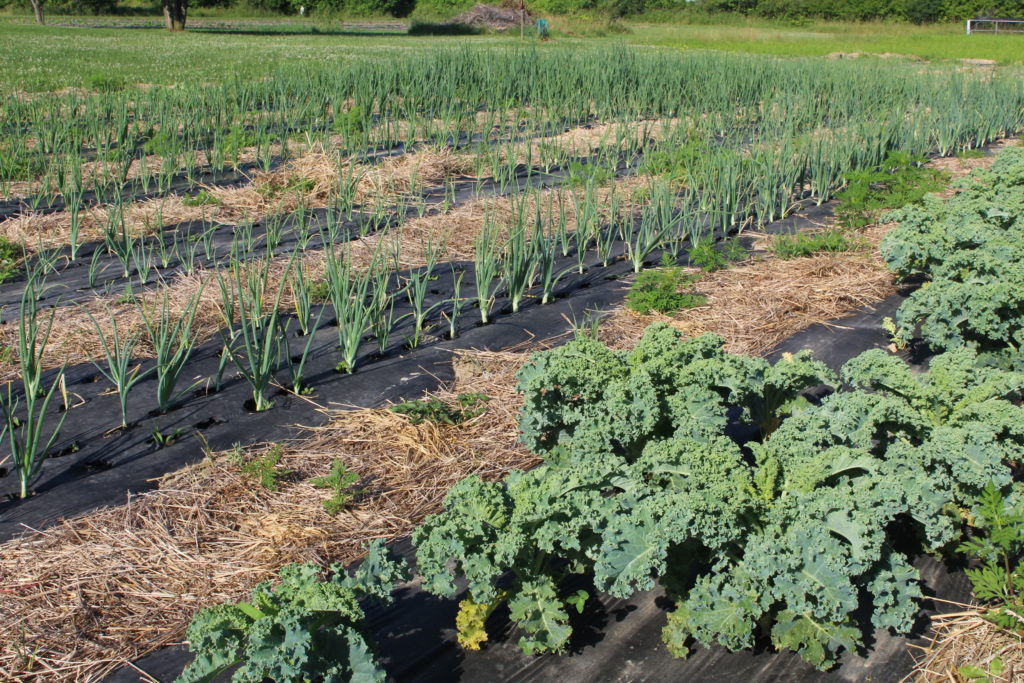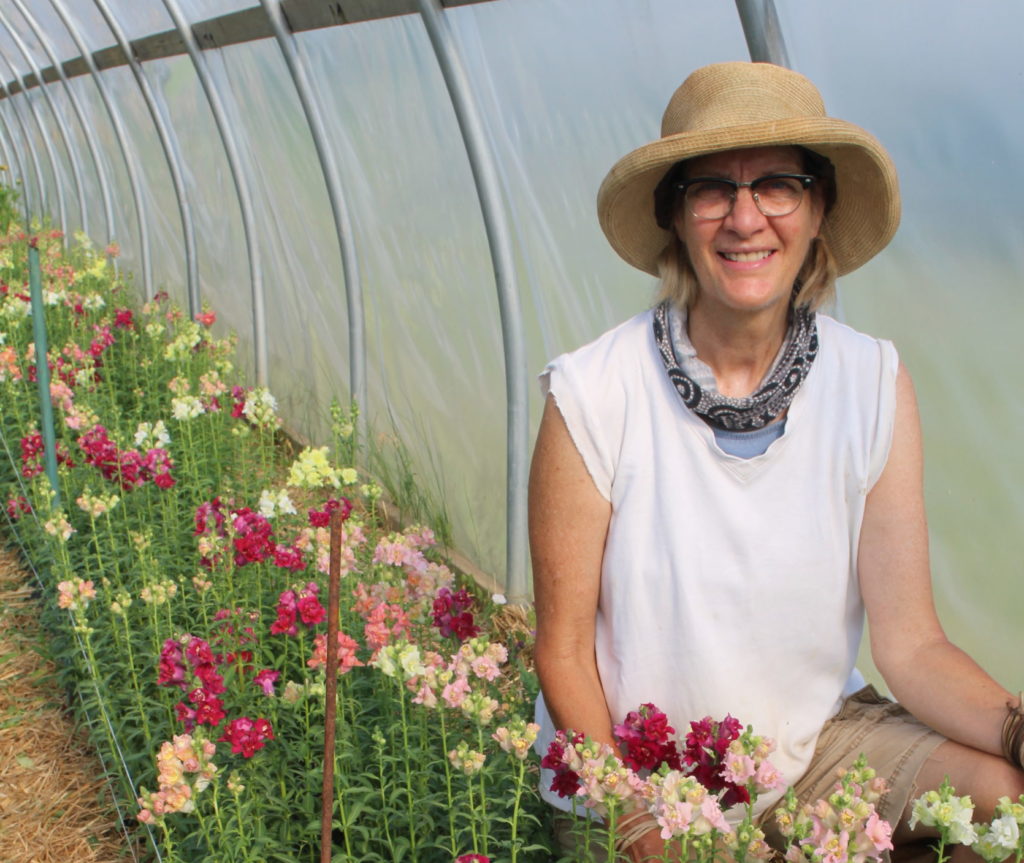
Feb 9, 2021
Owosso Organics plans crops carefully, as COVID-19 triples CSA membership
The pandemic has taken the CSA (Community Supported Agriculture) membership of Owosso Organics near Owosso, Michigan, to a new level. “Our CSA participation tripled this year because people wanted to secure their food source,” said Pooh Stevenson, owner of the farm with her husband, Richard Bowie.
The growth in CSA participation has reduced the number of farmers’ markets Owosso Organics sells at from two to one, and the pandemic has brought changes to that market.
“Vendors must wear masks,” Stevenson said. “That’s a market requirement.” The market’s vendor area is encircled with rope to guide foot traffic to one entry point where staff monitors the number of visitors entering the farmers market. “It brings challenges,” Stevenson said, “but you have to adapt. We also sell wholesale to a couple of health food stores and to local restaurants.”
Owosso Organics is best known for its tomatoes — both heirloom varieties and cherry tomatoes. Cherry tomato varieties include red, yellow, orange and darker ‘Chocolate Cherry’ varieties. The cherry tomatoes are combined and sold as a rainbow mix.
The list of vegetables Owosso Organics grows includes beets, brassicas, carrots, onions, leeks, beans, cucumbers, eggplants, peppers, summer and winter squash, potatoes, kale and mixed leafy greens. “We offer a growers’ choice salad mix,” Stevenson said. “We also sell a lot of baby eggplant and a lot of hot, hot peppers.”

Owosso Organics also makes and sells Owosso Organics Hot Sauce under the authority of the Michigan Cottage Food Law. “It’s a vinegar-based hot sauce we make with our own hot peppers and our own garlic,” Stevenson said.
Michigan’s Cottage Food Law exempts a “cottage food operation” from many of the licensing and inspection provisions of the Michigan Food Law. Under the Cottage Food Law, non-potentially hazardous foods that don’t require time and/or temperature control during processing can be produced in a home kitchen for direct sale to customers.
Owosso Organics is certified through the Global Organic Alliance, Inc., in Bellefontaine, Ohio. The certification for the four acres of organic production costs about $700 per year. That includes membership, a review of the paper records and the cost of the certifier coming out for the farm visit.
Certification requires records. There are forms to document field activities, inputs, harvesting logs, and records on pests, diseases and weeds — to name a few — but the recordkeeping isn’t that difficult. “You develop a system and you abide by that system throughout the season,” Stevenson said.
Ninety percent of the records are hand-written and prepared outside during the daily activities. “It’s easier for me to be in the barn writing things down,” Stevenson said. Field activities change — the day’s plan isn’t always the plan followed — and close observation is a must for accurate records.
Both Pooh and Richard attended Michigan State University (MSU) as does their daughter, Taylor, who still works on the farm. Their other daughter, Cody, lives in Austin, Texas.
“We always had a garden with each rental property while at MSU and the gardens got bigger and bigger,” Stevenson said. “I worked at a health food store and saw the rise in organic food. We’re both vegetarian and have been committed to good health for a number of years.”
Pooh and Richard bought their 80-acre farm in 1990 and it has been certified organic since 1994. The farm has four acres of vegetables and cut flowers in organic production.
Owosso Organics offers vegetables in two sizes to CSA participants. The Standard Share is designed to feed a family of two for the week and the Premium Share a family of four (or a vegetarian family of two). Giving customers a choice is important. “It does help,” Stevenson said. “Sometimes two customers will share a Premium Share because it’s cheaper.”
The CSA also has a Flower Share where participants receive a designed bouquet of cut flowers from July to September. Owosso Organics also offers cut flowers by the bucket DIY (Do It Yourself) for weddings and other special events.

A sound, planned rotation — in the fields and in the hoophouses — is the basis for organic production. It helps prevent the build-up of soil disease pathogens and insect pests to unsustainable levels.
The four acres of organic production are divided into 12 plots. The rotation goal is to only have one family of vegetables — like brassicas or the Solanaceae family of vegetables — in each plot. The family of vegetables grown in each plot is rotated every few years and there are rotations within each plot every year.
The Brassicaceae family of vegetables includes crops like broccoli, cabbage and cauliflower. The Solanaceae family includes eggplant, peppers and tomatoes. Other common vegetable families are the Fabaceae family which includes beans and peas and the Cucurbitaceae family which includes vine crops like cucumbers, pumpkins and squash. Rotations must be across plant families to prevent disease and insect pest build-up and not merely the crops within a family.
Rotations are also carefully planned in the hoophouses. Cucumbers, as an example, are not typically an indoor crop but are a good rotation option to tomatoes and are grown on a trellis system to conserve space. Tomatoes are a high-value crop but “tomatoes are never going to follow tomatoes,” Stevenson said.
A diverse rotation may not maximize revenue on the farm in any given year but helps ensure sustainability. “Organic production must be sustainable in the long term,” Stevenson said.






